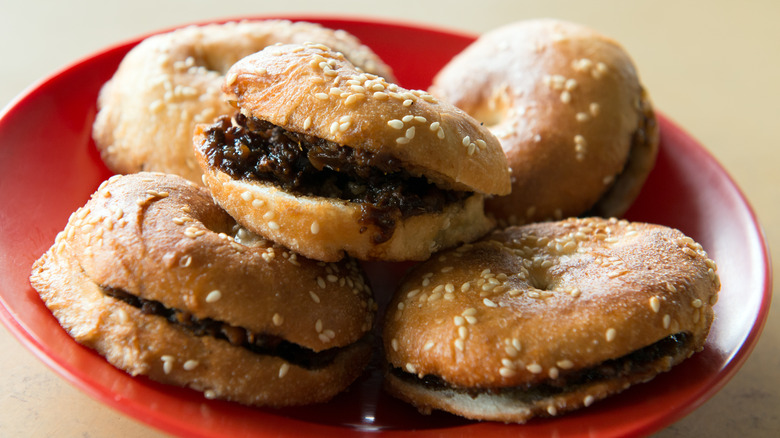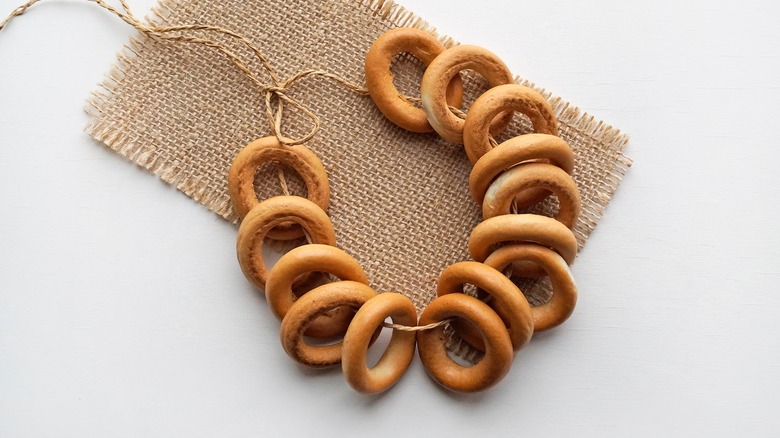The 500-Year-Old Chinese 'Bagel' Invented To Help Soldiers Avoid Detection
There is a multitude of bagels out there in the world, and what makes a bagel stand out from other carb-loaded bread forms is its distinctive shape: a round piece of bread with a hole in the middle. Bagels have long been part of human culinary history. A similar Polish bread called obwarzanek is nearly 700 years old, but they were first recorded in writing in 1610 in Krakow, per Smithsonian Mag.
Even though bagels are now commonplace in the United States, they didn't arrive there until the late 19th century. On the other side of the world in Kashgar, China, another round shaped bread with an indented hole in the middle, the girde naan, evolved from naan bread that arrived in China via the Silk Road (via SBS).
But China is a massive enough country that it has not just one bagel-esque bread, but two: There's also the guang bing. From the Fujian province, guang bing — which translates to "shiny biscuit" (via Goldthread) is China's answer to a bagel since it has a crispy and shiny exterior, a soft interior, and a hole straight through the middle. The guang bing's place in history also has more than just culinary importance: It helped win a war.
General Qi Jiguang and his bread necklaces
Famed General Qi Jiquang of the Ming Dynasty is known for renovating the Great Wall of China and defending the nation against Japanese pirates (via Travel China Guide), but in the year 1563, his war tactics also inadvertently led to the invention of the beloved guang bing bread.
According to Great Big Story, Japanese pirates landed on China's shores where General Qi's armies camped, performing night raids and stealing away with what they could grab. As it turns out, the campfires the soldiers built for cooking are what led the pirates to the army camps.
General Qi's answer was to bake bread in stealth mode in an underground clay oven. Adding a hole to the guang bing was also a purposeful military tactic, so the fuel could be strung around a necklace and eaten on the run or in the middle of an ambush. Hundreds of years later, one bakery in Fu'an is still making guang bing, where locals eat the bread morning, day, and night.

